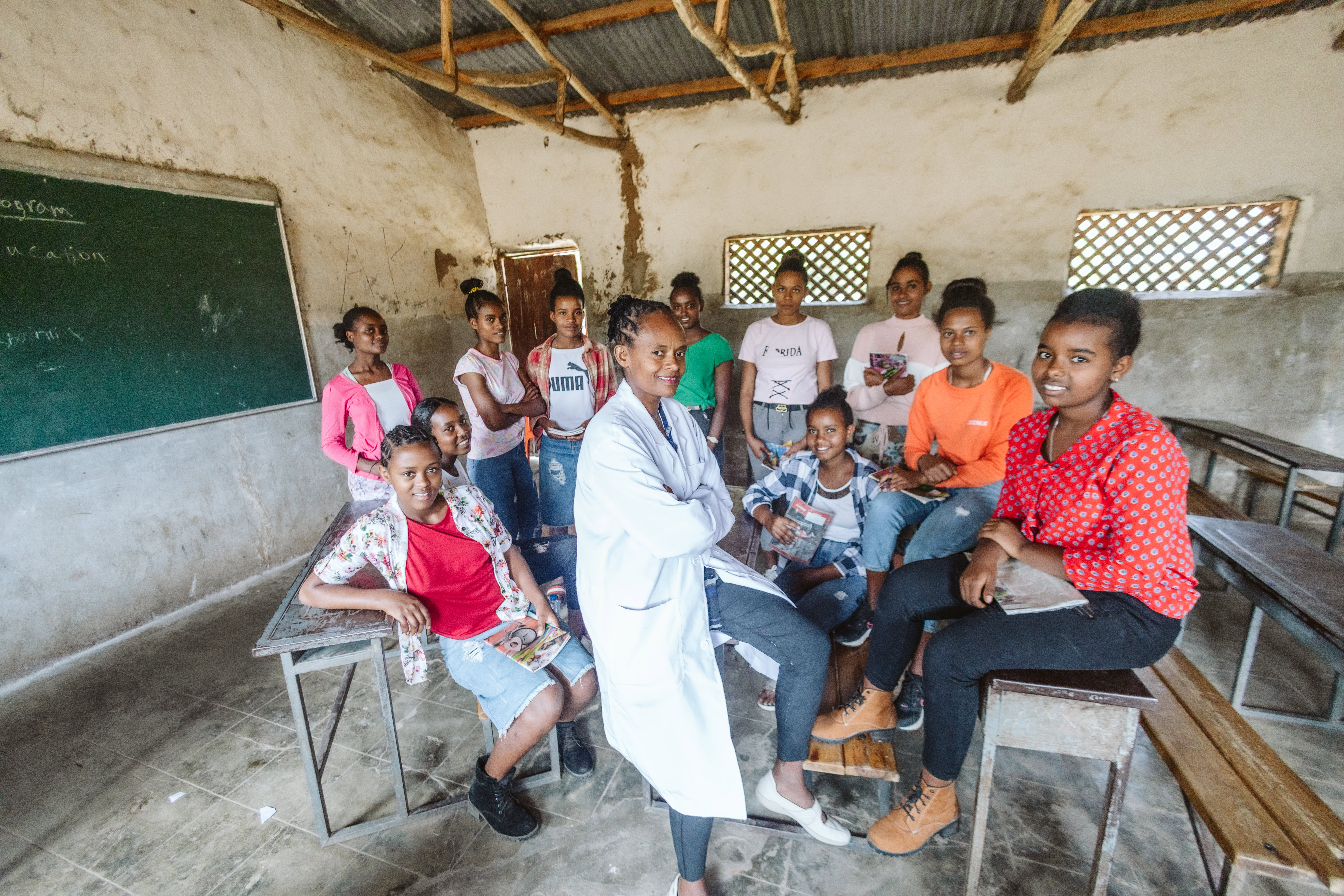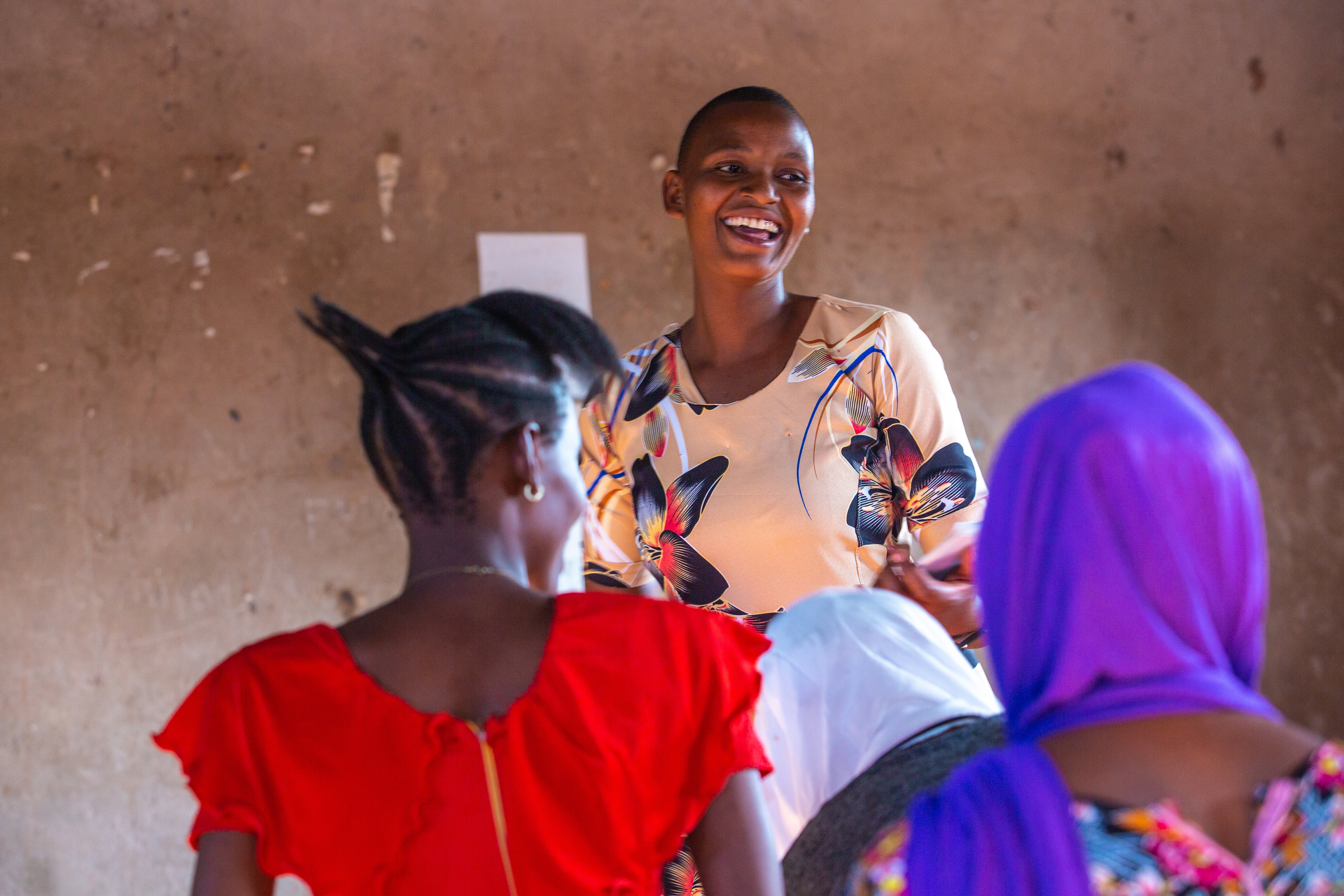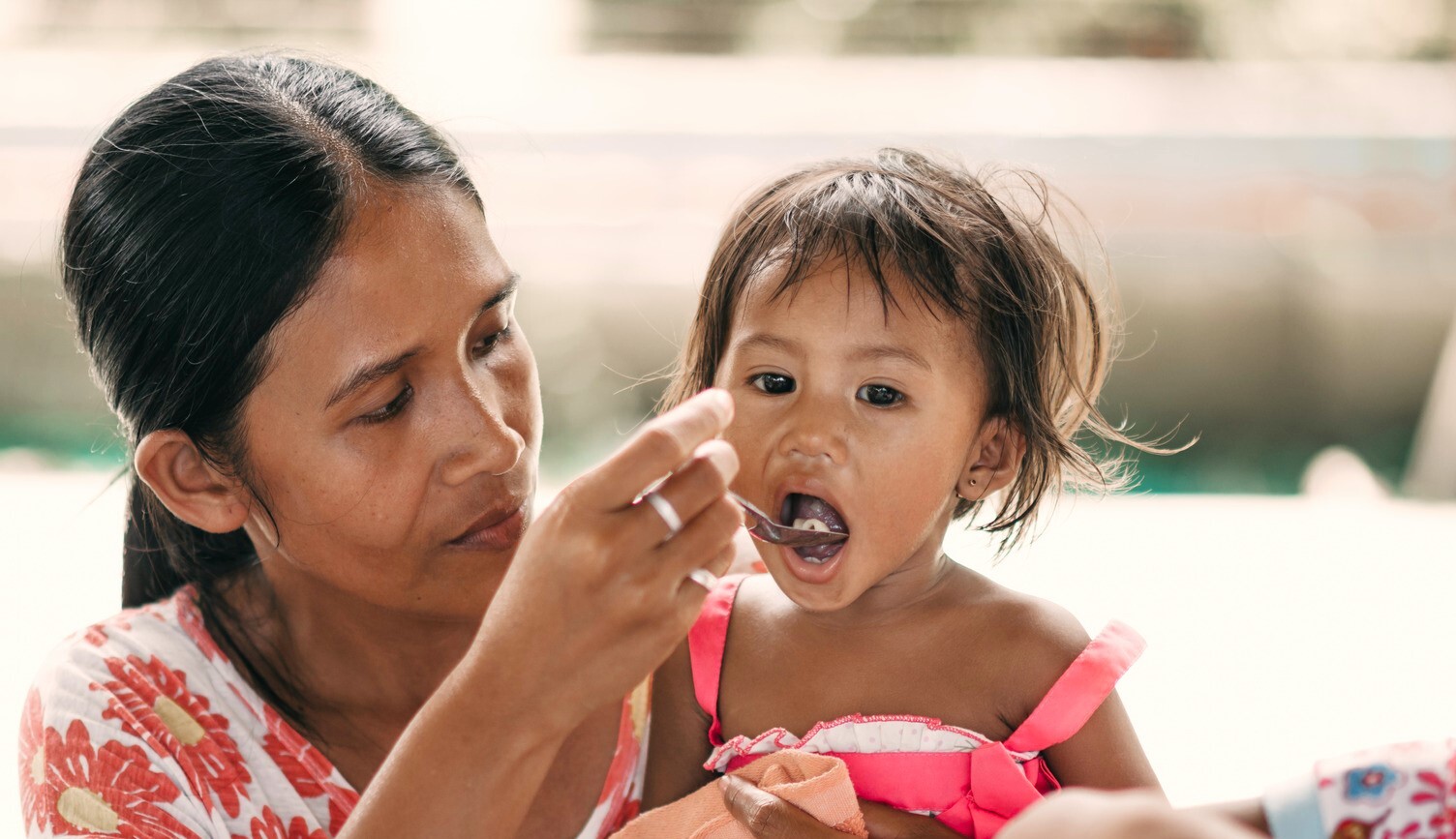Field Stories
Centering women’s voices to drive meaningful change
March 5, 2025
WP_Term Object
(
[term_id] => 49
[name] => Field Stories
[slug] => all-field-stories
[term_group] => 0
[term_taxonomy_id] => 49
[taxonomy] => news-category
[description] => Discover the personal stories of people whose lives have been impacted by better nutrition, and those working tirelessly to deliver it.
[parent] => 0
[count] => 181
[filter] => raw
)
Ten inspiring global nutrition stories
As 2024 comes to a close, we’re showcasing a selection of stories that represent the work we do around the world to improve the nutrition of women, girls and children. Together with communities, partners and governments, we’re changing the nutritional status of people globally – and we’re ready to do more.
Posted on December 17, 2024
Globally, malnutrition threatens health, education and economic opportunities. As we approach the deadline to achieve the 2030 Sustainable Development Goals and global nutrition targets, Nutrition International continues to centre the lived experiences of women, adolescent girls and children, and work in partnership with governments to defeat malnutrition with innovative, high-impact solutions that change lives.
From adolescents showcasing what ‘girl power’ means in Ethiopia to health workers reaching remote corners of Bangladesh with lifesaving vitamin A to the communal strength of mother support groups in Kenya, in 2024, we witnessed resilience, progress and an unwavering commitment to healthier futures for all. Here are 10 milestones from the year that show what’s possible when we unite for better nutrition.
In the Jamalpur region, health workers like Habibullah travel door-to-door by boat and on foot to deliver essential vitamin A supplements to children under five in remote areas. Their efforts are part of the Child-to-Child Searching Strategy, a post-campaign initiative adopted by the government in 2013 to reach children who miss national distribution events. With Nutrition International’s support, this lifesaving program works to ensure no child is left behind, improving immunity and offsetting vitamin A deficiency to reduce the risks of blindness or severe illnesses.
Follow along in photos: Go door-to-door to deliver vitamin A supplementation in remote areas in Bangladesh
Peer support group promotes maternal and newborn health in Kenya
In Vihiga County, Kenya, mother-to-mother support groups are empowering women with the knowledge and skills they need to support healthy pregnancies, safe childbirth and postnatal care. Led by trained local leaders like Sherry Wamunyenga, these groups are a key part of a comprehensive behaviour change strategy aimed at fostering awareness and promoting care-seeking behaviour among members. Supported through domestic funding from Nutrition International’s joint funding agreement with the County Government of Vihiga, this initiative is a cornerstone of the County Nutrition Action Plan, a roadmap for sustainable, community-driven nutrition solutions.
Learn more: Peer support group promotes maternal and newborn health in Kenya

In Oromia, Meseret, a determined Grade 8 student with dreams of becoming a scientist, is already making a difference among her peers. As a leader of her school’s girls’ club, she is challenging the status quo by raising awareness about anaemia prevention, menstrual health and the importance of staying in school. With support from Nutrition International, Mesret and the girls’ club are equipping adolescent girls with essential knowledge, while fostering confidence and a strong sense of self.
Read the story: Girls’ club boosts confidence and takes on malnutrition
The life-saving potential of kangaroo mother care
Kangaroo mother care (KMC) is a lifesaving practice involving continuous skin-to-skin contact between a caregiver and baby, fostering warmth, exclusive breastfeeding, bonding and improved milk supply. Pakistan faces a high prevalence of low birthweight babies, ranging from 16% in urban and 26.2% in rural areas according to the National Nutrition Survey 2018. Nutrition International is collaborating with provincial governments and healthcare facilities to train doctors, nurses, lady health workers and lady health visitors in KMC techniques. This effective approach equips mothers and families with the skills to provide crucial care, significantly improving health outcomes for preterm and low birthweight infants.
Learn more: The life-saving potential of kangaroo mother care

Meet Tausi, a 19-year-old mother, farmer, aspiring nurse and community leader who is harnessing her leadership skills to champion sexual and reproductive health and nutrition rights among her peers. Armed with the knowledge learned through Nutrition International’s Building Rights for Improved Girls’ Health in Tanzania (BRIGHT) project, Tausi facilitates discussions with her peers and community leaders on adolescent nutrition, life skills, gender-based violence, family planning and more.
Read the story: Q&A with a BRIGHT adolescent leader
Better Investment for Stunting Alleviation
Stunting impacts a child’s physical and cognitive development, leading to poor school performance, lost productivity and an increased risk of nutrition-related diseases, such as diabetes and obesity. According to the 2018 National Riskesdas Report, one-third of children in Indonesia were reported to be stunted. The Government of Indonesia stepped up to eliminate new stunting cases by launching the National Strategy to Accelerate Stunting Prevention. Through the Better Investment for Stunting Alleviation (BISA) project, Nutrition International and Save the Children worked with the government to enhance nutrition for women and children before pregnancy and during the critical first 1,000 days. By working through national ministries, this initiative supports sustainable change to create healthier futures for families across the country.
Learn more: Better Investment for Stunting Alleviation
Meet Ibrahima Ndao (far right), Nutrition International Project Director, trained food technology engineer and nutrition expert, who is spearheading efforts to reduce childhood mortality in Chad through vitamin A supplementation (VAS). In Chad, children under five receive their twice-yearly dose of VAS through biannual campaigns safeguarding them from the consequences of vitamin A deficiency including preventable diseases and death. However, high vulnerability, displacement, conflict and Chad’s status as one of the poorest countries in the world can complicate campaign delivery. Working closely with the Ministry of Health, Ibrahima and his team leverage their expertise to tackle logistical and systemic barriers to help all children receive their lifesaving dose.
Read the story: Q&A with a leader in nutrition and child survival
Training at the Centre of Excellence for Maternal and Newborn Care
In Uttar Pradesh, the Centre of Excellence for Maternal and Newborn Care is improving health services by training district health workers like Shanti Rai, an auxiliary nurse midwife. With support from Nutrition International, this initiative not only directly provides enhanced services for patients who visit the hospital, but also serves as a training hub for healthcare providers across the district. This transformative step, part of India’s National Health Mission, is paving the way for safer pregnancies and healthier futures.
Learn more: Training at the Centre of Excellence for Maternal and Newborn Care

To enhance maternal health and improve birth outcomes across the country, Nutrition International in collaboration with the Bauchi State Government and the Federal Ministry of Health, launched the Optimizing Adherence to Multiple Micronutrient Supplementation for Pregnant Women in Nigeria implementation research project. Global evidence shows that antenatal multiple micronutrient supplementation (MMS), a daily supplement containing 15 vitamins and minerals, is as effective as iron and folic acid supplementation in preventing maternal anaemia and more effective at improving birth outcomes. Conducted in three selected local government areas within Bauchi State, this research will explore the acceptability, feasibility, sustainability and cost-effectiveness of scaling up MMS programming. It will also develop and test human-centered design strategies to optimize the uptake and adherence of MMS among pregnant women.
Read the story: Bauchi State launches groundbreaking research project to identify new ways to accelerate maternal health

To improve the dietary quality and micronutrient status of women, adolescent girls and children under five, Nutrition International launched the Bridging the Fortification Gap in the Philippines (BFGP) project. In collaboration with the National Nutrition Council of the Philippines and the Iodine Global Network, this two-year initiative aims to strengthen policies on wheat flour fortification and universal salt iodization. Funded by the Quantedge Advancement Initiative, this collaborative effort will enhance access to key micronutrients and improve the nutritional status of the population.
Read the story: Nutrition International and partners leverage food fortification to fight micronutrient deficiencies in the Philippines
As 2024 comes to an end, our resolve to end poverty and build a better world for everyone by ending malnutrition has never been stronger. Read our 2023-2024 Annual Report to learn more about our global impact in nutrition.